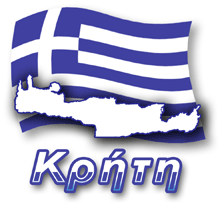
 2024-04-20 17:54:36
2024-04-20 17:54:36
Everything indicates that the decisions of the Greek Ministry of National Economy and Finance and the Ministry of the Environment have made quite a revolution in terms of relaxation on many famous beaches of Hellas. In recent days, a list of 198 Greek beaches located in Natura 2000 areas, i.e. areas of great ecological importance, where a regime of absolute protection will apply, has been published. This means, among other things, a ban on issuing licenses for placing deck chairs and umbrellas. This ban also covers 9 Natura 2000 areas in Crete. The places where such a regime will apply have been called "false beaches".
In these places, in addition to placing sun loungers, umbrellas, tables and bar seats, it will also be prohibited to organize events involving more than 10 people and to play music. The presence of motor vehicles, including recreational marine vehicles, as well as mobile catering using a car or trailer will also be prohibited.
The criteria for selecting beaches to be protected included the presence of protected species habitats as defined by EU or national legislation, the presence of rare endemic species of flora and fauna and their ecological functions, the presence of important ecosystems requiring protection, conservation or restoration, and key biodiversity areas .
Minister of National Economy and Finance Kostis Hatzidakis said: “ The main goal of the regulations we established with Law 5092/2024 is to combine environmental protection with sustainable development. After all, the environment is a valuable component of the Greek tourism product. We care about efficiency, which is why we are implementing a general framework for the protection of "wild beaches", which will remain in force until the Special Environmental Studies commissioned for Natura 2000 areas are developed .
Minister of Environment and Energy Thodoros Skylakakis emphasized: " Our decision on the matter provides that 'false beaches' will not be allocated for tourist purposes, because on these beaches the priority is the environmental aspect, not the development and investment dimension ."
However, ministerial decisions concern not only protected places. New rules will also be implemented to organize public property on other beaches. Entrepreneurs renting deckchairs will have to ensure access to the sea for everyone and maintain certain free space on the beaches. The new conditions for granting concessions are to be transparent and based on electronic auctions with a starting price. An electronic register of concession agreements and a digital MyCoast application will also be created, through which it will be possible to monitor the fulfillment of concession agreements. Access to detailed data on each license is to be available to every citizen after logging in to the database. In cases of violation of the terms of the concession or unlawful, arbitrary occupation of the beach, Greek citizens will be able to file a complaint through this application.
It will also be mandatory to place the QR code of the concession on a special sign at the beach. Scanning it will allow you to quickly locate the beach in the MyCoast application, check license details or file a complaint. To ensure that this tool is not abused, e.g. in cases of unfair competition, only one complaint for a given license can be submitted on the same day from the same device.
The new law also specifies the obligations of licensees to serve beachgoers, guarantee safety and ensure accessibility for those who do not want to use rented sun loungers. In cases of obstruction of free access to the sea, severe penalties ranging from €2,000 to €60,000 are provided.
It seems that the ministerial decision will also contribute to solving the problem of overtourism on many famous beaches of Crete. Some of Crete's beaches, which are subject to the ban on issuing licenses, have been struggling with excessive tourist interest for years. If it becomes impossible to rent deckchairs, it is likely that some people will give up resting in such places.
The new regulations are also a response to last year's "towel movement", i.e. the opposition of Greek residents to the illegal privatization of entire beaches by companies providing paid sunbeds and umbrellas. These entrepreneurs often operated without any permission, illegally occupying entire beaches, making it impossible to relax on them without renting deckchairs. In some very touristic places, the costs of renting sun loungers reached up to €120 per day. Residents of Greece stopped agreeing to such practices because they did not want to pay so much for renting beach accessories. Last year, during the wave of protests against such practices, there were many stories about people being asked to leave beaches and even using violence against beachgoers resting on their own towels.
Below are maps showing the areas of Crete where beaches will be covered by new strict regulations:
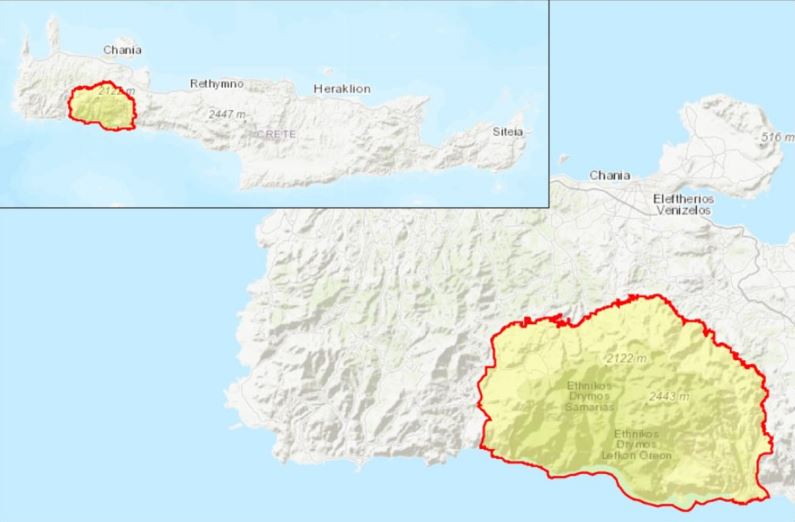 Sfakia and White Mountains area
Sfakia and White Mountains area
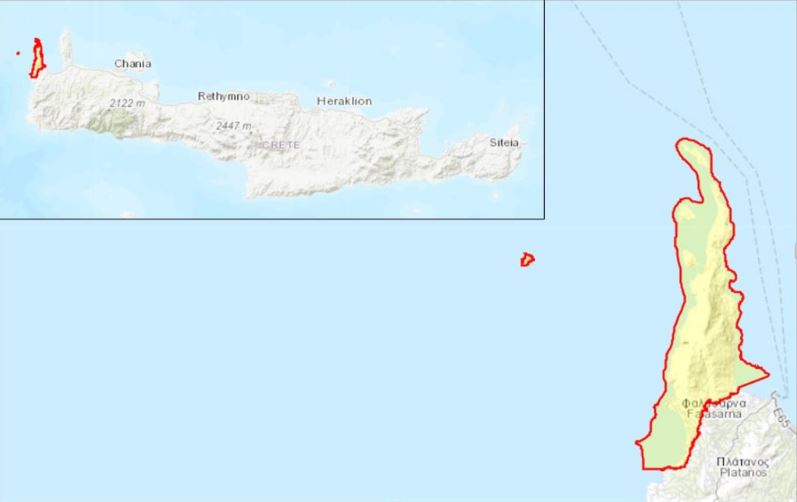 Falassarna, Gramvousa and Balos area
Falassarna, Gramvousa and Balos area
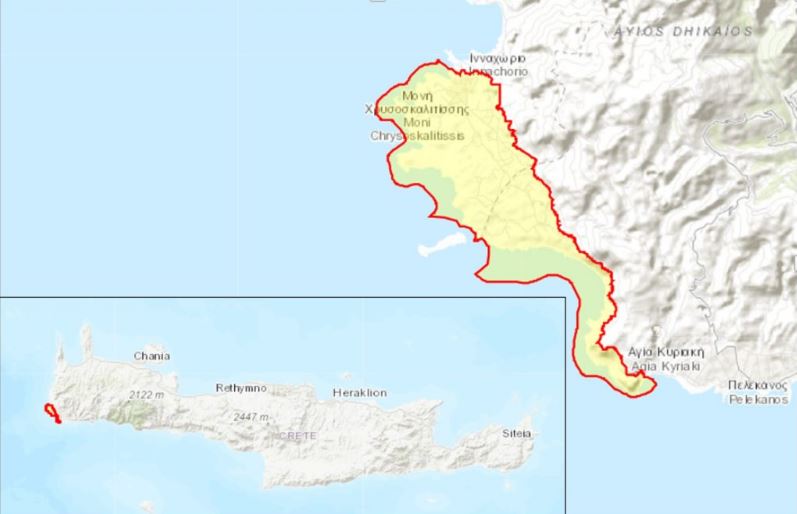 The area from Chrisokalitissa through Elafonissi to Krios
The area from Chrisokalitissa through Elafonissi to Krios
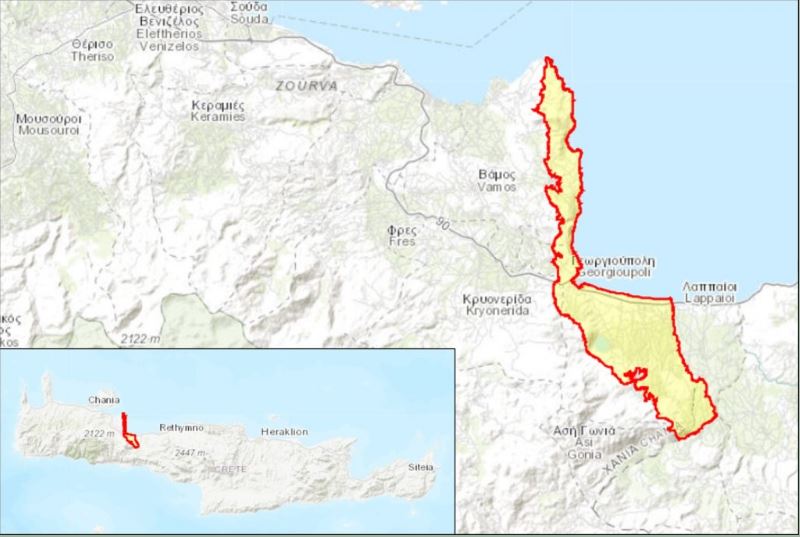 Georgioupolis Beach from Cape Drapano to Lake Kournas
Georgioupolis Beach from Cape Drapano to Lake Kournas
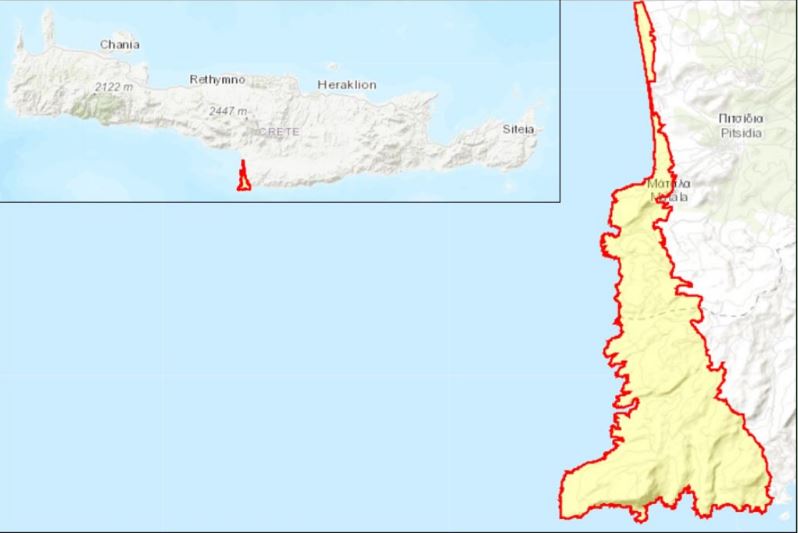 The western part of the Asterousia mountain range from Kokkino Pyrgos to Agiofarango
The western part of the Asterousia mountain range from Kokkino Pyrgos to Agiofarango
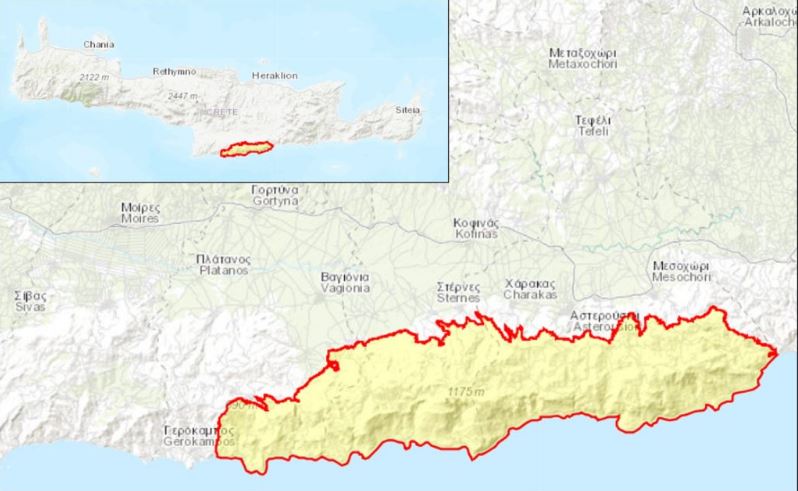
Asterousia mountain range area - Kofina region
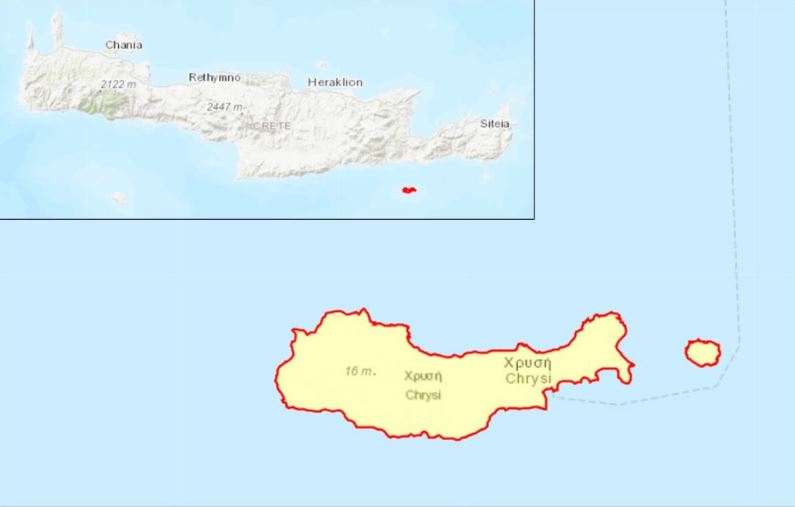
Chrissi Island
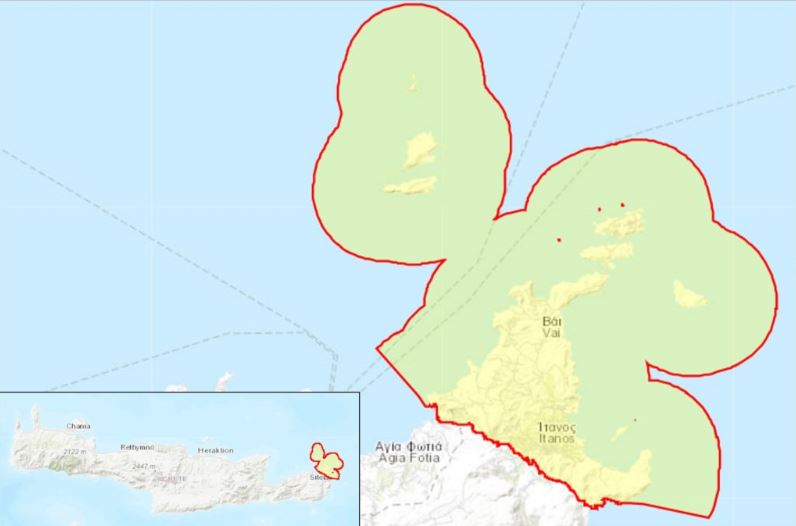 The north-eastern tip of Crete, among others Vai, Itanos
The north-eastern tip of Crete, among others Vai, Itanos
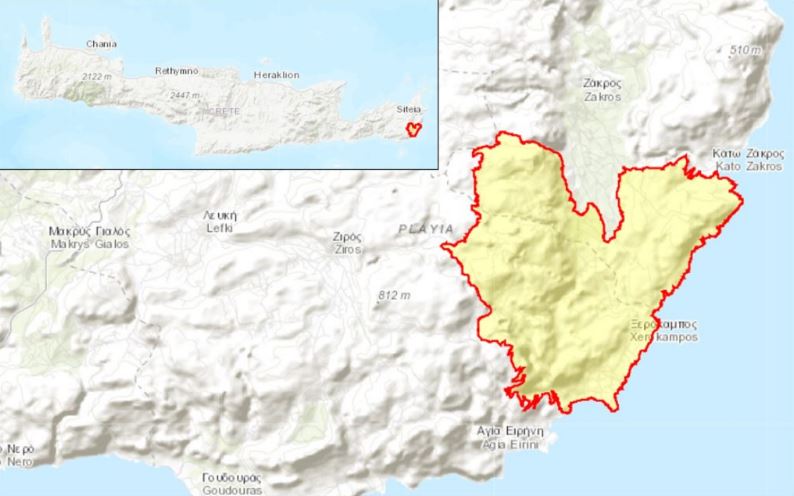 Zakros area including the beaches of Xerokambos
Zakros area including the beaches of Xerokambos
 2024-04-20 17:54:36
2024-04-20 17:54:36
Komentarze
komentarz z
To znaczy, że z Falasarny znikną baldachimy do leżenia? Trochę rewolucja.
komentarz z
Mirek Jarek Szczerze mówiąc to ciekawi jesteśmy dalszego rozwoju sytuacji ponieważ powyższe przepisy uderzą w możliwości zarobkowe wielu osób.
komentarz z
CRETE - Kreta dokładnie. Myślę że trochę zbyt rygorystycznie podchodzą do tematu. Zaraz okaże się że nie można na żadną plaże wchodzić i na niej przebywać. Chrissi już zamknięta od pandemii. A był bar, leżaki itd. Myślę że to pozbawienie ludzi zarobku a także zniechęcanie turystów do odwiedzania wyspy. No ale ktoś bierze za to odpowiedzialność.
komentarz z
Małe sprostowanie.
Określenie "Fałszywe plaże" jest błędne. Chodzi tu o "Niezadeptane plaże" (gr. Απάτητες παραλίες) ;)
komentarz z
Karolina Pisarek Lionaki dzięki za sprostowanie :)
komentarz z
Proszę bardzo!
komentarz z
Bardzo dobrze. Jak ktoś nie chce wypożyczać leżaka, to miejsca musi szukać na drugim końcu wyspy i w najbrzydszej okolicy.
komentarz z
Ina też racja. Zwykli turyści są często wypychani poza najlepsze obszary.
komentarz z
W Falasarnie byłam ostatnio jakieś 2-3 lata temu. Leżak na leżaku, głośna muzyka z baru, co najmniej dwa kłady, kursujące tam i z powrotem co kilka minut, generujace niesamowity hałas i smród.... a pamiętam jeszcze czasy, jak można było na tej plaży rozłożyć się z kocykiem w ciszy i spokoju, eh... no cóż może i szkoda miejsc pracy, ale ludzie wszystko potrafią zniszczyć i nie znają umiaru jeśli chodzi o kasę, ... no i osobiście wolę ciszę i spokój
komentarz z
Joanna Więckowska byłem w ostatnie wakacje. Tu się zgodzę z tymi quadami. Cena za baldachim z dwoma materacami bodajże 70€. Trochę cena kosmos. Faktycznie lepiej z kocykiem i swoim parasolem. Muzyki głośnej zbytnio nie było. Ale restauracja oddalona od plaży przy parkingu myślę jest ok. Kto ma ochotę coś wszamać ma tą możliwość. To akurat nie przeszkadza.
komentarz z
Bardzo się cieszę. Mnie to odpowiada, bo nie znoszę głośnej muzyki na plaży i coraz trudniej było znaleźć miejsce bez leżaków. Jak ktoś chce leżaki to zapewne znajdzie odpowiednie miejsce.
Nam się podoba - może znowu da się jeździć na Kretę. Miłośników leżaków zapraszamy z powrotem na północne wybrzeże.
komentarz z
W Jeorjopouli montowali parasole kilka dni temu. No jestem ciekawa czy teraz będą demontować.
komentarz z
Asia Wieland Też jesteśmy ciekawi na ile nowe przepisy zostaną wdrożone w życie....
Wypełnij poniższy formularz aby dodać komentarz
lub kliknij w poniższy link aby skorzystać z możliwosci komentowania przez facebooka:
https://www.facebook.com/crete.poland/posts/821115420062724